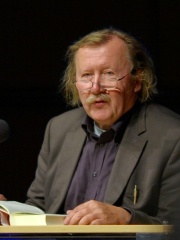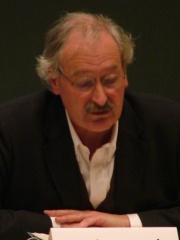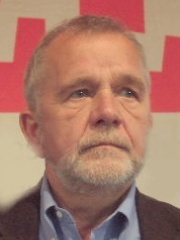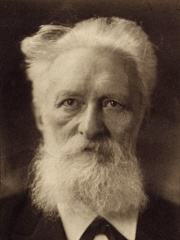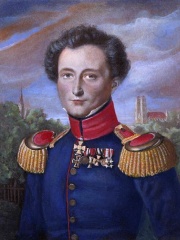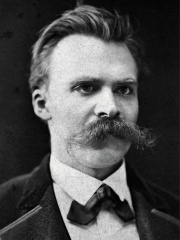

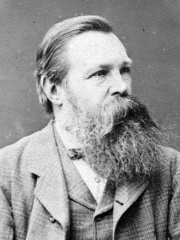

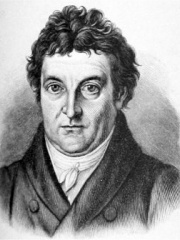
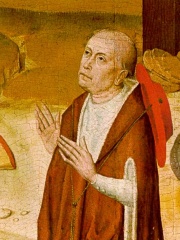
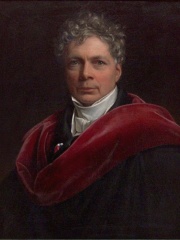
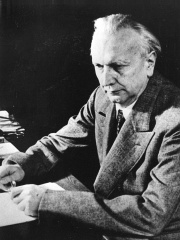
The Most Famous
PHILOSOPHERS from Germany
This page contains a list of the greatest German Philosophers. The pantheon dataset contains 1,267 Philosophers, 151 of which were born in Germany. This makes Germany the birth place of the most number of Philosophers.
Top 10
The following people are considered by Pantheon to be the top 10 most legendary German Philosophers of all time. This list of famous German Philosophers is sorted by HPI (Historical Popularity Index), a metric that aggregates information on a biography's online popularity. Visit the rankings page to view the entire list of German Philosophers.

1. Friedrich Nietzsche (1844 - 1900)
With an HPI of 90.17, Friedrich Nietzsche is the most famous German Philosopher. His biography has been translated into 174 different languages on wikipedia.
Friedrich Wilhelm Nietzsche (15 October 1844 – 25 August 1900) was a German philosopher. He began his career as a classical philologist, turning to philosophy early in his academic career. In 1869, aged 24, Nietzsche became the youngest professor to hold the Chair of Classical Philology at the University of Basel. Plagued by health problems for most of his life, he resigned from the university in 1879, and in the following decade he completed much of his core writing. In 1889, aged 44, he suffered a collapse and thereafter a complete loss of his mental faculties, with paralysis and vascular dementia, living his remaining 11 years under the care of his family until his death. His works and his philosophy have fostered not only extensive scholarship but also much popular interest. Nietzsche's work encompasses philosophical polemics, poetry, cultural criticism and fiction, while displaying a fondness for aphorisms and irony. Prominent elements of his philosophy include his radical critique of truth in favour of perspectivism; a genealogical critique of religion and Christian morality and a related theory of master–slave morality; the aesthetic affirmation of life in response to both the "death of God" and the profound crisis of nihilism; the notion of Apollonian and Dionysian forces; and a characterisation of the human subject as the expression of competing wills, collectively understood as the will to power. He also developed influential concepts such as the Übermensch and his doctrine of eternal return. In his later work he became increasingly preoccupied with the creative powers of the individual to overcome cultural and moral mores in pursuit of new values and aesthetic health. His body of work touched a wide range of topics, including art, philology, history, music, religion, tragedy, culture and science, and drew inspiration from Hebrew literature, Indian literature and Greek tragedy, as well as figures such as Zoroaster, Arthur Schopenhauer, Ralph Waldo Emerson, Richard Wagner, Fyodor Dostoevsky and Johann Wolfgang von Goethe. After Nietzsche's death, his sister, Elisabeth Förster-Nietzsche, became the curator and editor of his manuscripts. She edited his unpublished writings to fit her German ultranationalist ideology, often contradicting or obfuscating Nietzsche's stated opinions, which were explicitly opposed to antisemitism and nationalism. Through her published editions, Nietzsche's work became associated with fascism and Nazism. Twentieth-century scholars such as Walter Kaufmann, R. J. Hollingdale and Georges Bataille defended Nietzsche against this interpretation, and corrected editions of his writings were soon made available. Nietzsche's thought enjoyed renewed popularity in the 1960s and his ideas have since had a profound impact on 20th- and 21st-century thinkers across philosophy—especially in schools of continental philosophy such as existentialism, postmodernism and post-structuralism—as well as art, literature, music, poetry, politics and popular culture.

2. Georg Wilhelm Friedrich Hegel (1770 - 1831)
With an HPI of 88.27, Georg Wilhelm Friedrich Hegel is the 2nd most famous German Philosopher. His biography has been translated into 137 different languages.
Georg Wilhelm Friedrich Hegel (27 August 1770 – 14 November 1831) was a German philosopher and a major figure in the tradition of German idealism. His influence on Western philosophy extends across a wide range of topics—from metaphysical issues in epistemology and ontology, to political philosophy, to the philosophy of art and religion. Hegel was born in Stuttgart. His life spanned the transitional period between the Enlightenment and the Romantic movement. His thought was shaped by the French Revolution and the Napoleonic wars, events which he interpreted from a philosophical perspective. His academic career culminated in his appointment to the chair of philosophy at the University of Berlin, where he remained a prominent intellectual figure until his death. Throughout his work, Hegel strove to correct what he argued were untenable dualisms common in modern philosophy. His principal achievement was the development of a comprehensive philosophical system, often termed absolute idealism, to account for reality as a unified whole. Central to this system is the concept of "spirit" (Geist), which Hegel presented as humankind coming to know itself through a historical process of rational development. Hegel's characteristic procedure, often termed dialectical or speculative, assesses concepts and forms of consciousness according to their own internal criteria, revealing their contradictions and one-sidedness. This leads to their resolution in a higher, more comprehensive unity which both cancels and preserves the initial stage. His major works, including the Phenomenology of Spirit (1807) and the Science of Logic (1812–1816), detail this systematic vision. In his political philosophy, he famously asserted that "world history is progress in the consciousness of freedom." Hegel's influence has been profound and divisive. After his death, his followers split into rival "Right" and "Left" Hegelian camps. The Left, including Ludwig Feuerbach and Karl Marx, adapted his dialectical method for their materialist critiques of religion and society. In the twentieth century, his thought was further developed in traditions such as French Hegelianism and critical theory, and became a major point of reference for existentialism.

3. Friedrich Engels (1820 - 1895)
With an HPI of 85.72, Friedrich Engels is the 3rd most famous German Philosopher. His biography has been translated into 127 different languages.
Friedrich Engels (German: [ˈfʁiːdʁɪç ˈɛŋl̩s]; 28 November 1820 – 5 August 1895) was a German philosopher, political theorist, journalist, businessman, and revolutionary socialist. He is best known for his lifelong collaboration with Karl Marx, with whom he co-authored The Communist Manifesto (1848) and developed the political and philosophical system that came to be known as Marxism. After Marx's death, Engels served as the editor of his works, completing the second and third volumes of Das Kapital. Born in Barmen, Prussia, to a prosperous mercantile family, Engels rejected his family's devoutly pietistic values from a young age. He became involved with the Young Hegelians while performing military service in Berlin and embraced a materialist philosophy. In 1842, his father sent him to Manchester, England, to work in a cotton mill in which the family had an investment. His experiences of the industrial working class there led him to write his first major work, The Condition of the Working Class in England (1845). In 1844, Engels began a permanent partnership with Marx in Paris. Together they worked to critique the prevailing idealist philosophies and develop their materialist conception of history, notably in The Holy Family (1845) and The German Ideology (unpublished in their lifetimes). They became active in the Communist League, which commissioned them to write the Manifesto. Engels participated actively in the Revolutions of 1848, including in armed combat, before being forced into exile in England. From 1850, he lived in Manchester and worked for the family firm of Ermen & Engels for two decades, leading a double life as a respectable cotton merchant while providing crucial financial support to the impoverished Marx family in London. After retiring in 1870, Engels moved to London and took on a central role in the International Workingmen's Association. Following Marx's death in 1883, he devoted the rest of his life to editing Marx's writings and acting as the leading authority on their shared philosophy. His own works, particularly Anti-Dühring (1878) and Socialism: Utopian and Scientific (1880), were instrumental in popularizing Marxism and became foundational texts for the Second International. Engels's application of dialectics to science in works like Dialectics of Nature was later controversially developed into the state ideology of the Soviet Union. He died of cancer in London in 1895, and his ashes were scattered off Beachy Head.

4. Martin Heidegger (1889 - 1976)
With an HPI of 84.92, Martin Heidegger is the 4th most famous German Philosopher. His biography has been translated into 113 different languages.
Martin Heidegger (German: [ˈmaʁtiːn ˈhaɪdɛɡɐ]; 26 September 1889 – 26 May 1976) was a German philosopher known for contributions to phenomenology, hermeneutics, and existentialism. His work covers a range of topics including metaphysics, art, religion, and language. In April 1933, Heidegger was elected as rector at the University of Freiburg and has been widely criticized for his membership and support for the Nazi Party during his tenure. After World War II, he was dismissed from Freiburg and banned from teaching after denazification hearings at Freiburg. There has been controversy about the relationship between his philosophy and Nazism. In Heidegger's first major text, Being and Time (1927), Dasein is introduced as a term for the type of being that humans possess. Heidegger believed that Dasein already has a "pre-ontological" and concrete understanding that shapes how it lives, which he analyzed in terms of the unitary structure of "being-in-the-world". Heidegger used this analysis to approach the question of the meaning of being; that is, the question of how entities appear as the specific entities they are. In other words, Heidegger's governing "question of being" is concerned with what makes beings intelligible as beings.

5. Hannah Arendt (1906 - 1975)
With an HPI of 82.29, Hannah Arendt is the 5th most famous German Philosopher. Her biography has been translated into 91 different languages.
Hannah Arendt (born Johanna Arendt; 14 October 1906 – 4 December 1975) was a German and American historian and philosopher. She was one of the most influential political theorists of the twentieth century. Her works cover a broad range of topics, but she is best known for those dealing with the nature of wealth, power, fame, and evil, as well as politics, direct democracy, authority, tradition, and totalitarianism. She is also remembered for the controversy surrounding the trial of Adolf Eichmann, for her attempt to explain how ordinary people become actors in totalitarian systems, which was considered by some an apologia, and for the phrase "the banality of evil." Her name appears in the names of journals, schools, scholarly prizes, humanitarian prizes, think-tanks, and streets; appears on stamps and monuments; and is attached to other cultural and institutional markers that commemorate her thought. Hannah Arendt was born to a Jewish family in Linden in 1906. Her father died when she was seven. Arendt was raised in a politically progressive, secular family, her mother being an ardent Social Democrat. After completing secondary education in Berlin, Arendt studied at the University of Marburg under Martin Heidegger, with whom she engaged in a romantic affair that began while she was his student. She obtained her doctorate in philosophy at the University of Heidelberg in 1929. Her dissertation was entitled Love and Saint Augustine, and her supervisor was the existentialist philosopher Karl Jaspers. In 1933, Arendt was briefly imprisoned by the Gestapo for performing illegal research into antisemitism. On release, she fled Germany, settling in Paris. There she worked for Youth Aliyah, assisting young Jews to emigrate to the British Mandate of Palestine. When Germany invaded France she was detained as an alien by the French government. She escaped and made her way to the United States in 1941. She became a writer and editor and worked for the Jewish Cultural Reconstruction, becoming an American citizen in 1950. With the publication of The Origins of Totalitarianism in 1951, her reputation as a thinker and writer was established, and a series of works followed. These included the books The Human Condition in 1958, as well as Eichmann in Jerusalem and On Revolution in 1963. She taught at many American universities while declining tenure-track appointments. She died suddenly of a heart attack in 1975, leaving her last work, The Life of the Mind, unfinished.

6. Johann Gottlieb Fichte (1762 - 1814)
With an HPI of 81.40, Johann Gottlieb Fichte is the 6th most famous German Philosopher. His biography has been translated into 80 different languages.
Johann Gottlieb Fichte (19 May 1762 – 29 January 1814) was a German philosopher who became a founding figure of German idealism, which developed from the theoretical and ethical writings of Immanuel Kant. Fichte is an important philosopher in his own right due to his original insights into the nature of self-consciousness or self-awareness. Fichte was also the originator of thesis–antithesis–synthesis, an idea that is often erroneously attributed to Hegel. Like Descartes and Kant before him, Fichte was motivated by the problem of subjectivity and consciousness. Fichte also wrote works of political philosophy; he has a reputation as one of the fathers of German nationalism.

7. Nicholas of Cusa (1401 - 1464)
With an HPI of 80.39, Nicholas of Cusa is the 7th most famous German Philosopher. His biography has been translated into 66 different languages.
Nicholas of Cusa (1401 – 11 August 1464), also referred to as Nicholas of Kues and Nicolaus Cusanus (), was a German Catholic bishop and polymath active as a philosopher, theologian, jurist, mathematician, and astronomer. One of the first German proponents of Renaissance humanism, he made spiritual and political contributions to European culture. A notable example of this is his mystical or spiritual writings on "learned ignorance," as well as his participation in power struggles between Rome and the German states of the Holy Roman Empire. As papal legate to Germany from 1446, he was appointed cardinal for his merits by Pope Nicholas V in 1448 and Prince-Bishop of Brixen two years later. In 1459, he became vicar general in the Papal States. Nicholas has remained an influential figure. In 2001, the sixth centennial of his birth was celebrated on four continents and commemorated by publications on his life and work.

8. Friedrich Wilhelm Joseph Schelling (1775 - 1854)
With an HPI of 80.32, Friedrich Wilhelm Joseph Schelling is the 8th most famous German Philosopher. His biography has been translated into 69 different languages.
Friedrich Wilhelm Joseph Schelling (German: [ˈfʁiːdʁɪç ˈvɪlhɛlm ˈjoːzɛf ˈʃɛlɪŋ]; 27 January 1775 – 20 August 1854), later (after 1812) von Schelling, was a German philosopher. Standard histories of philosophy make him the midpoint in the development of German idealism, situating him between Johann Gottlieb Fichte, his mentor in his early years, and Georg Wilhelm Friedrich Hegel, his one-time university roommate, early friend, and later rival. Interpreting Schelling's philosophy is regarded as difficult because of its evolving nature. Schelling's thought in the main has been neglected, especially in the English-speaking world. An important factor in this was the ascendancy of Hegel, whose mature works portray Schelling as a mere footnote in the development of idealism. Schelling's Naturphilosophie also has been attacked by scientists for its tendency to analogize and lack of empirical orientation. However, some later philosophers have shown interest in re-examining Schelling's body of work.

9. Karl Jaspers (1883 - 1969)
With an HPI of 80.28, Karl Jaspers is the 9th most famous German Philosopher. His biography has been translated into 73 different languages.
Karl Theodor Jaspers (; German: [kaʁl ˈjaspɐs] ; 23 February 1883 – 26 February 1969) was a German-Swiss psychiatrist and philosopher who had a strong influence on modern theology, psychiatry, and philosophy. His 1913 work General Psychopathology influenced many later diagnostic criteria, and argued for a distinction between "primary" and "secondary" delusions. After being trained in and practising psychiatry, Jaspers turned to philosophical inquiry and attempted to develop an innovative philosophical system. He was often viewed as a major exponent of existentialism in Germany, though he did not accept the label.
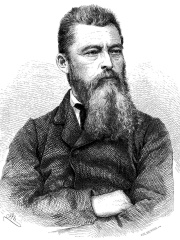
10. Ludwig Feuerbach (1804 - 1872)
With an HPI of 80.22, Ludwig Feuerbach is the 10th most famous German Philosopher. His biography has been translated into 73 different languages.
Ludwig Andreas Feuerbach ( FOIR-bahkh; German: [ˈluːtvɪç ˈfɔʏɐbax]; 28 July 1804 – 13 September 1872) was a German philosopher and anthropologist who was a leading figure among the Young Hegelians. He is best known for his 1841 book, The Essence of Christianity, which argued that God is a projection of the essential attributes of humanity. His critique of religion formed the basis for his advocacy of atheism, materialism, and sensualism. In his later work, Feuerbach developed a more complex theory of religion arising from the human confrontation with nature. His thought served as a critical bridge between the philosophy of Georg Wilhelm Friedrich Hegel and that of Karl Marx. The son of a distinguished jurist, Feuerbach studied theology at Heidelberg before moving to Berlin to study directly under Hegel. His academic career was cut short in 1830 when his anonymously published first book, Thoughts on Death and Immortality, was condemned as scandalous for its attack on the concept of personal immortality. Barred from university posts, Feuerbach lived and worked in rural isolation for much of his life, in which he produced most of his significant writings supported by his wife's share in a porcelain factory. Feuerbach's philosophy developed as a critique of Hegel's speculative idealism, which he viewed as the last, most abstract form of theology. He argued that idealism inverted the true relationship between thought and being, and that philosophy's proper subject was not the abstract Absolute, but the concrete, sensuous human being. In The Essence of Christianity, he contended that religion is a form of self-alienation in which humanity projects its own "species-essence"—its unlimited capacity for reason, love, and will—onto a divine being, which it then worships. In his later works, including the Lectures on the Essence of Religion, he developed a "bipolar" theory of religion in which religious belief arises from the human confrontation with nature, driven by the "drive to happiness" and the fear of death. Feuerbach's thought was a major influence on his contemporaries, particularly Marx and Friedrich Engels. Marx adopted Feuerbach's materialist inversion of Hegel and his theory of alienation, but later criticized him in his Theses on Feuerbach for having a materialism that was too contemplative and for understanding humanity in terms of a static "essence" rather than in terms of concrete social and historical practice (praxis). Feuerbach's work also exerted an influence on the thought of Friedrich Nietzsche and Sigmund Freud.
People
Pantheon has 151 people classified as German philosophers born between 1096 and 1982. Of these 151, 7 (4.64%) of them are still alive today. The most famous living German philosophers include Jürgen Habermas, Peter Sloterdijk, and Axel Honneth. The most famous deceased German philosophers include Friedrich Nietzsche, Georg Wilhelm Friedrich Hegel, and Friedrich Engels. As of April 2024, 1 new German philosophers have been added to Pantheon including Friederike Otto.
Living German Philosophers
Go to all RankingsJürgen Habermas
1929 - Present
HPI: 79.46
Peter Sloterdijk
1947 - Present
HPI: 67.42
Axel Honneth
1949 - Present
HPI: 66.09
Rüdiger Safranski
1945 - Present
HPI: 59.43
Volker Zotz
1956 - Present
HPI: 54.73
Richard David Precht
1964 - Present
HPI: 51.37
Friederike Otto
1982 - Present
HPI: 38.36
Deceased German Philosophers
Go to all RankingsFriedrich Nietzsche
1844 - 1900
HPI: 90.17
Georg Wilhelm Friedrich Hegel
1770 - 1831
HPI: 88.27
Friedrich Engels
1820 - 1895
HPI: 85.72
Martin Heidegger
1889 - 1976
HPI: 84.92
Hannah Arendt
1906 - 1975
HPI: 82.29
Johann Gottlieb Fichte
1762 - 1814
HPI: 81.40
Nicholas of Cusa
1401 - 1464
HPI: 80.39
Friedrich Wilhelm Joseph Schelling
1775 - 1854
HPI: 80.32
Karl Jaspers
1883 - 1969
HPI: 80.28
Ludwig Feuerbach
1804 - 1872
HPI: 80.22
Rudolf Christoph Eucken
1846 - 1926
HPI: 79.85
Carl von Clausewitz
1780 - 1831
HPI: 79.09
Newly Added German Philosophers (2025)
Go to all RankingsOverlapping Lives
Which Philosophers were alive at the same time? This visualization shows the lifespans of the 25 most globally memorable Philosophers since 1700.


